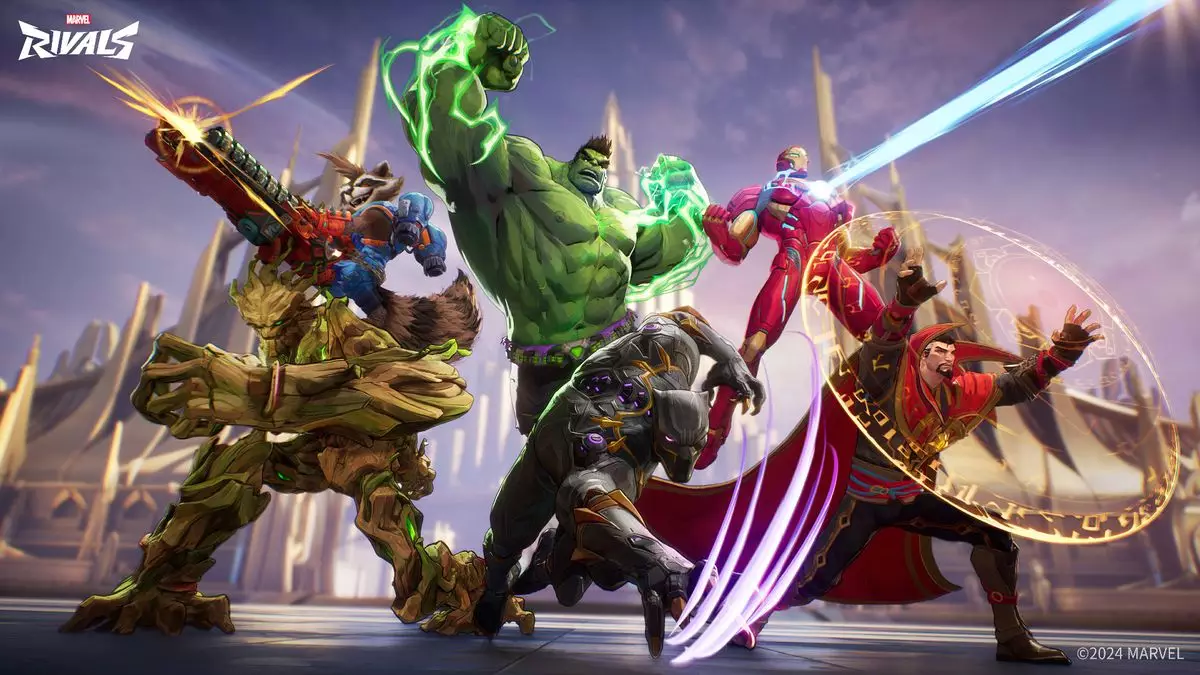The competitive landscape of Marvel Rivals has sparked intense debates amongst players, particularly when it comes to hero viability. While many view characters like Hulk and Groot as dominant forces in gameplay, recent analyses reveal a more nuanced truth. A player known on Reddit as Aggragating_Job9976 has meticulously compiled data to demystify the rankings of various heroes, showcasing a clear divide between player perception and statistical proof.
Aggragating_Job9976’s approach to creating a tier list is both rigorous and enlightening. This player harnessed the power of extensive data by focusing on the TOP500 players in the leaderboard. Rather than cherry-picking data from individual hero performance, he tracked a variety of heroes that those players frequently utilized, ensuring a robust analysis. By aggregating information from nearly 600 rows in his spreadsheet—despite some profiles being private—the depth of this analysis cannot be overstated.
One of the more intriguing aspects of his methodology is the emphasis on playtime. Aggragating_Job9976 reports stats for heroes that have more than three hours of playtime, ensuring that only viable candidates are considered. This consideration is pivotal; often, a hero’s effectiveness can be skewed if highlighted by players who have not fully explored all possible dynamics.
In crafting his tier list, Aggragating_Job9976 places significant weight on two primary factors: pick rate and average win rate. The former metric reveals how frequently a hero is selected at higher ranks, which can hint at a hero’s overall potential and desirability in competitive settings. On the other hand, win rate provides a glimpse into actual performance, serving as a measure of a hero’s effectiveness in battles.
For instance, Doctor Strange emerges as a powerhouse with an impressive win rate of 64.6% over 2,900 games, even if he is not the most frequently picked hero. Contrastingly, characters like Peni Parker may boast a higher win rate at 70.5% but with a significantly smaller sample size of 400 games. This sample size disparity is crucial because it fundamentally questions the reliability of win rate as a standalone metric.
By incorporating pick rate into his analysis, Aggragating_Job9976 effectively highlights heroes, such as Hela and Luna Snow, who dominate both metrics, managing to secure their position in the coveted S tier.
The tier list curated by Aggragating_Job9976 has caused many players to reconsider their assumptions about character strength. For instance, while it’s easy to perceive Iron Fist as a top-tier risk given his aggressive playstyle, he finds himself in a more modest B tier position. This reevaluation challenges the typical narrative surrounding certain heroes based merely on anecdotal experiences rather than quantitative performance.
Another intriguing finding is the unexpected placement of the Scarlet Witch in the D tier. Such a result contradicts the popular belief in her capabilities, further emphasizing the importance of relying on objective data rather than preconceived notions. This level of analysis urges players to reassess their strategies and consider more statistical evidence when selecting their heroes.
The implications of this statistical analysis extend beyond mere rankings. They touch on the psychology of player choice, where the allure of certain characters can sometimes sway decisions over evidence-backed performance. While heroes may boast captivating aesthetics or backstories that resonate with players, that does not always translate into in-game efficacy.
In competitive environments, players often follow trends and hive minds, which can skew hero viability discussions. The insights revealed by Aggragating_Job9976 encourage players to dig deeper and prioritize data over popularity—the essence of a truly strategic approach to gameplay.
As Marvel Rivals continues to evolve, so too will the discussions around character viability and effectiveness. The insightful work of Aggragating_Job9976 not only serves as an essential reminder of the nuanced layers within competitive gaming but also reaffirms the importance of grounding opinions in hard data. This approach not only enriches player experiences but also fosters a community that appreciates the intricacies of gameplay beyond surface-level narratives. As players, embracing a data-driven mindset may be the key to unlocking new levels of performance and enjoyment in the game.

